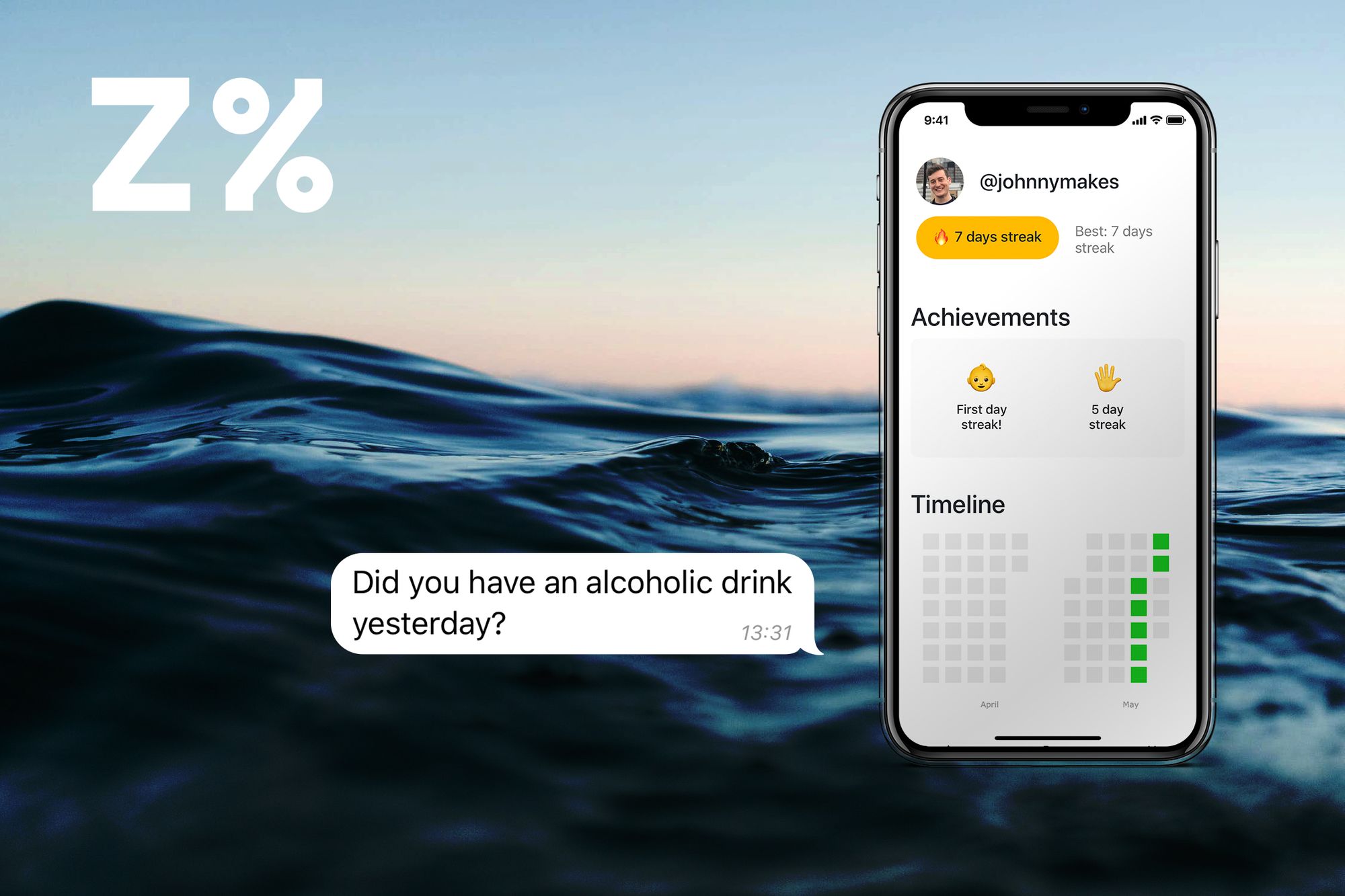Startup #6: Kick-starting an energised community

What if a goal could become a game of itself? 👾
Does being united with a group of others with the same goal make you more likely to achieve it? 👨👩👧👦
What I'm going to try here is an experimental mechanism to bootstrap an energised community...
In order to kickstart Zero Percent (and also test some theories around incentive design), I'm going to create a challenge mode!
The plan is to unite/attract users around a tough goal, so I have a pool of power-users to then help build out a community space and crowdsource the future parts of Zero Percent.
So, the hypothesis
The theory here is that an ‘extreme’ challenge will gather a highly focused and engaged group of users together, which can then form the backbone that all the crowd-sourced parts of ZP can be built upon. (Let's see how it actually turns out).
Time to start bootstrapping a community!
Problem validation
The problem is the same as with the original Zero Percent... we're simply testing a new angle on the solution here.
Solution
I'm going to start by building a 100 day no-drinking challenge. Why 100? It sounds challenging and tested well just in conversation with people, so it makes for an easy message to spread. 100 is simply a catchy number.
For a challenge to matter, there needs to be a consequence – so I'm going to trial letting a user stake a bet on them beating the challenge, thus giving them significant skin in the game and incentivising them to see it all the way through to the end.
For the purpose of simplicity, the challenge stake will be $100 – again, it's a simpler message:
"$100 to go 100 days"
If the user make it 100 days without drinking, they get all $100 back. And if they don't, the money is kept (and the majority donated to charity).
Most importantly, all the users that have committed get added to one Telegram group where they can not only share and discuss, but also hold each other accountable to completing the challenge. The idea is that within this space, the users can become more tightly knit and engaged in the platform.
Design
Now, of course a user can lie to the chatbot, and that's totally fine – after all, this challenge is about creating an external source of accountability, but remains optional. If the user lies to the chatbot, they will get all their money back, but they also won't have gotten the accountability benefit, so it's equivalent to them not having taken part in the first place.
However, to incentivise honesty, all 100 day challengers get 3 lives [❤️❤️❤️] so that the consequence of telling the chatbot that they drank during the challenge isn't so strong... in theory making it more palatable to be honest in their responses.
Building it
So I had to in effect re-engineer the entire existing ZeroPercent Python app, but managed to get to a fully working ZeroPercent no-drinking challenge:
🏆 Working challenge game using chatbot for tracking
💬 Special private group chat for challengers with the bot built-in as a group member (but not spamming the group)
🤑 Working payment flows with Stripe
I also did some work to streamline the landing page to make it clearer and simpler (and test that people get it first time). The initial design tried to set out more of the 'vision' for ZeroPercent... which was actually confusing as it tried to be multiple things, the majority of which hadn't been built yet.
One of the trickier parts was the need to understand the timezone of the user and message them at an appropriate time ...carefully avoiding dropping them a friendly message at 2AM. There's not really a native way to this within a messaging app, so what I built was a timezone function, where the bot asks the user to share their location a single time, and from that calculates the timezone that the user belongs to. I then built a Python clock that checks what timezone should be receiving messages every hour, checks what users belong to that timezone and then messages them. All that just to send a message at lunchtime!
Soft launch
I soft-launched whilst in Canggu, gradually ticking up to 33 registered users – a mix of friends with an interest in wellness and members of the No Drinks Telegram group.
Following some early user feedback, I also introduced a leaderboard and refined the messaging style of the bot, making it more friendly and intuitive.
Once I reached 100 users, with the majority (55%) active every day, it was time to launch to a wider audience...
Full launch
I nervously launched on Product Hunt on a Friday at one minute past midnight.
After a few hours and an initial slow start, I reached the #2 product of the day, beating out Apple (although it wasn't to last)!
Day 1 of the launch, I received 1000 new site visitors with around 18% converting into new users.

And then, just a few days later I hit 1000 users on the chatbot!
We hit 1000 USERS on https://t.co/jAOd3RFOmj 🎉🎉
— johnny makes ✌️ @ 🇭🇺 (@johnny_makes) October 5, 2019
Interestingly, most new users go directly to the chatbot, not the site – so users are sharing it with their friends!
What's next? ➡️
I'm going to build on this 1st piece w/ more useful tools to grow the no-drinking community💧 pic.twitter.com/xj02wTXrwI
Because of the daily response nature of the app, this meant that approximately 1000 users were active every day! However, the 100 day challenge itself saw virtually no take-up.
Evaluation
The ZeroPercent chatbot launch was a success! And with healthy retention, this space does seem like a promising one to continue with.
The 100 day challenge itself helped a great deal with the messaging, and is certainly a key part that comes up in conversations so it would appear to be a highly marketable concept, even if the take-up itself is very low.
My suspicion for the limited 100 day challenge engagement is partially the length of the challenge (too long), the channels that the product was discovered via (Product Hunt is more tech than necessarily wellness etc.), and the launch date: taking part in the 100 day challenge at launch would slice through Christmas, which is typically a social drinking time of year.
Next steps:
Build upon the ZeroPercent platform with more useful functionality for the no/low drinking demographic.
Launch another variant of the challenge mode with a more attainable timeline (30 days) and at a time of year which better fits the typical behaviour of cutting back on alcohol (Dry January).
Try it and let me know what you think:

